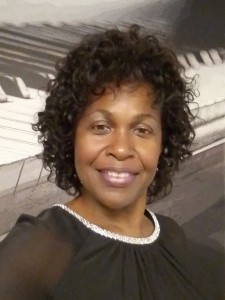Review: Dr. Ridley-Smith’s Performance Part 1
[Written by Dale Butler]
In August 2021, I did a review of a concert entitled “Reflection of a Hymn” and stated that I was most impressed with the performance of Dr. Constance Ridley-Smith [piano] and flutist Michael J.Taylor. I wondered where they had been hiding with so much talent.
In a recent interview, prior to her second performance in the “The American Protege International Competition of Romantic Music,” Constance revealed her busy daily schedule at the Bermuda College and how life in general, pulled her away from her passion with a circuitous route that has brought her full circle to a place on the prestigious Carnegie Hall stage. The fact that the Romantic Era [1749-1900] is her strong suit was a double plus.
It all started at the age two, when Constance tried to mimic her grandmother on the piano and by age 6 she was starting her foundation towards a music career that led to her attending Tennessee State University in her hometown. Once she started her music journey, also with mom’s support, she soon discovered that it would be a mammoth task to break into the classical world that had very few Black international performers.
Black male and female jazz piano players abounded but in the American classical realm only a few broke that barrier: males included William Grant Still [1895- 1978], George Walker [1922-2018], Joseph Bologne, Chevalier de Saint-Georges [1745-1799] and Andre Watts [1946 - July 2023]. Females included Florence Price [1887-1953], Margaret Bonds [1913-1972], Helen Eugenia Hagan [1891-1964] and Undine Smith Moore [1904-1989] worked hard to climb the American ladder with limited success then, but are often hailed today.
These Black musicians were trying to break new ground in the USA during a very racist era with limited stage invitations for them and media attention. Many talented black pianists, in order to make a living, had no choice but to change to church and jazz performances. International celebrity, Nina Simone, upon being rejected by the Curtis Institute is a well known artist who frequently mentioned her experiences which changed her classical ambitions.
In Bermuda, women faced similar challenges but had teachers who never gave in like: Dr. Ada Ayabongo, Thyra Bascombe, Elizabeth Gumbs, Errol Simmons, and Ann Brown, to name but a few. As the Chief Executive of Atlantic Publishing House I took a stab at it in 2013 with the “Bermuda’s first International Church Piano-Jazz Festival” that lasted just one year.
But in 2017 pianist Alex Tuchman and the Bermuda School of Music introduced The Bermuda Piano Festival in collaboration with the Masterworks Museum of Bermuda Art with overseas performers. I cite these examples, to ensure we remember our own efforts along this musical journey. But the stage and making a living as a classical pianist remains a very steep climb even today unless you have financial backers.
Constance Smith, however, seems determined to accept the challenge. Her passion has rebounded to the top of her list and she has returned with a renewed focus and time that led her to perform on Sunday, June 23rd at Weill Recital Hall at Carnegie Hall [NYC]. When she heard I had written a review of Tino Martinez at the SWSX Music Festival in Austin Texas, I was approached to cover her event featuring 30 pianist in a variety of categories:
- ages 6-9
- 10-12 etc
- amateur adults
- professional adults with and without degrees etc
With a second in the preliminaries, Constance has chosen to perform Frederic Francoia Chopin’s Revolutionary Etude: Op.10, No. 12 or the Etude on the Bombardment of Warsaw. Chopin in 39 years of his short life was known for his “expressive piano playing and innovative works.”
Part two of my report will give you the results of her tackling this fiery, fast and emotional piece which is filled with passionate intensity. On Sunday, June 23rd a panel of 3 judges will adjudicate against the standards of proper execution of that piece in the classical music framework.
This step considers whether the piece is executed as the composer wrote it, whether it utilizes proper technique for that era, and whether it delivers the ethos, the impact that has been in place for the last 200-300 years, and of course, whether the pianist can move the audience as the Music Master, himself would have been able to do – if he were still alive and performing today.
With the help and guidance of her piano teacher at the Juilliard School of Music, Dr. Patrick Kreeger, Constance will soon show us. She believes it is “a chance to achieve something special but it also provides an opportunity for growth and development as a performer as you hear others perform classical music.”
- Dale Butler: grew up having to listen to a variety of musical genres including classical. The piece Dr. Constance Ridley-Smith selected, has been mastered by many professionals, like Victoria Wong, Vladimir Horowitz and even on organ by Cameron Carpenter. Dale first heard it as a child performed by the legendary black performer Andre Watts. This is Dale’s first review of classical music and his report of Constance’s performance will be reported later this week.
Read More About
Category: All, Entertainment, Music



